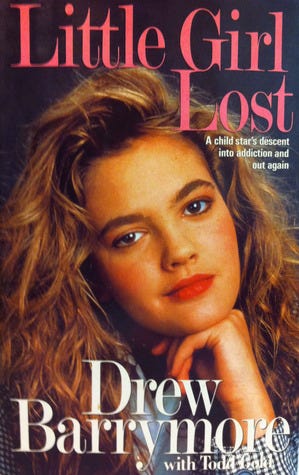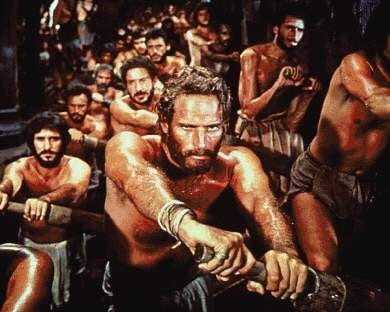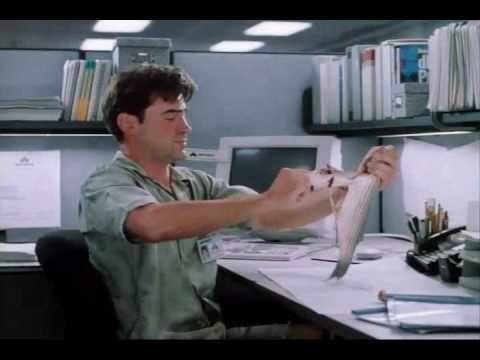So What, Who Cares (vol 2, issue 101) Why we need to look more closely at unlimited parental leave

Hello! You all shared some of your celebrity autobiography recommendations with me, among them: Little Girl Lost by Drew Barrymore (shared by @wonderlandchick); Born With Teeth by Kate Mulgrew (from @erinam); Child Star from Shirley Temple Black (via Coleen); Galina: A Russian Story by Galina Vishnevskaya, Lessons in Becoming Myself by Ellen Burstyn and Down the Rabbit Hole by Holly Madison (from Jennifer V); "the podcast You Must Remember This, 'secret and forgotten stories from Hollywood’s first 100 years'" (from Andrew E.). Finally, Margaret H. recommended Sandy Denton's Let's Talk About Pep, Kristen Johnston's Guts and Growgirl, by Heather Donahue.
Our poolside reading lists spilleth over. Thanks so much to everyone who wrote in. For future correspondents: If you have a Twitter account or a blog you'd like linked when you write in, please don't hesitate to share the link with me.
*
Netflix has become the latest tech company to revise its parental-leave policies, and will now offer "unlimited" maternity and paternity leave for employees for a year after a child's birth or adoption. A few tidbits to pay attention to in its blog announcement:
"We’ll just keep paying them normally, eliminating the headache of switching to state or disability pay."
"Each employee gets to figure out what’s best for them and their family, and then works with their managers for coverage during their absences."
So what? The "take it as you need it, so long as your manager is cool with it" policy has limited success in the workplace, with HR experts and workplace policy scholars noting that it's only a good idea in workplaces that are not intense, deadline-oriented, or engaged in a line of work where productivity is not easily measured. The "take it as you need it, so long as your manager is cool with it" approach also works only if employees don't trust management not to screw them over.
The good news is, Netflix is known for paying very close attention to its company culture. If the parental

leave policy causes talent to leave because they're not getting the experience they think they can get elsewhere (vol 2, issue 31), Netflix may well recalibrate.
Who cares? Other companies that are trying to thread the needle between "offering competitive benefits to talent" and "actually having to make good on generous benefits to talent." You can be sure they'll be sniffing around to see exactly how much time off employees take after having a baby -- and whether a company's workplace culture encourages people to really take as much time as they need, or if people will be heading back once the hellish six-week growth spurt is over.
People who watch the bottom lines at companies may also be interested in seeing how this plays out in terms of how much a company is or isn't paying to its insurance providers, which typically cover the pay for short-term disability (either wholly or through offsets to other parties).

MBAs and organizational-psychology types will doubtlessly be riveted by how this is implemented and tracked internally, how the requests are to be made, processed and documented, and how to guarantee that this parental-leave policy won't be used as cover to ease employees out the door.
Finally, legal eagles may be interested to see what protection employees have under the law. With a recent decision stating that the federal government's ERISA employee benefit plans supercede a state's parental leave policies, there's a coming showdown regarding who is the ultimate arbiter of how much unpaid or paid leave a employee is entitled to when they have a child. It will be interesting to see whether or how these situational benefits programs Netflix is offering are subject to any sort of regulation at all.
Past coverage: There have been explorations of the U.S.'s track record on paid parental leave and on workplace pressures influencing people's decisions about becoming parents in vol 2 ,issue 37; vol 2, issue 35; vol 2, issue 31; vol 1, issue 41; vol 1, issue 33; and vol 1, issue 18.
*

Your pop-culture note of the day: There has been a lot of very good writing about Tom Cruise lately, probably because most assigning entertainment editors are all of a generation where Tom Cruise was a big deal for longer than he's been an uncomfortable punchline. I wanted to point you to the three most engaging pieces I've seen:
Cruise’s Oscar Years: One Decade. Three Nominations. Myriad Lessons -- From Mark Harris(!) over at Grantland, as part of their Tom Cruise Week, a look at the 1988-1999 period. This is the best thing I've ever seen on Jerry Maguire:
Cameron Crowe’s Jerry Maguire is essentially an essay on Tom Cruise that Cruise coauthors by enacting it. Everything we feel about him — how can he be so unbelievably charming, why is he always selling, can we possibly trust someone who asks for our trust that nakedly, does his need make him more human or more scary, shouldn’t that irresistible surface count for something, why does it have to be quite so polished? — is embedded in this character, who is either trying to be a better person or trying to convince you he’s trying.
It's Time to Start Liking Tom Cruise Again -- Over at Vulture, Bilge Ebiri talks about how the relationship between the viewer and Tom Cruise is really an exercise in our own empathy. It's a great look at how reactive we can be as movie-goers.
The Failure of Tom Cruise 2.0 -- This is Buzzfeed's entry via Anne Helen Petersen, and I'm still chewing over whether or not any of it resonates with me; the 2014 L.A. Weekly piece "How YouTube And Internet Journalism Destroyed Tom Cruise, Our Last Movie Star" went there first and with considerable reportage depth to support the headline's thesis.
However, Petersen's piece does confirm something I'd also noticed in the press run-up to Mission Impossible: Whatever The Hell This One Is, and that's how the supporting cast did the junket and focused excessively on how working with Tom Cruise was not at all a fraught experience, no sir, Mr. Cruise -- call him Tom, really -- is just a really hard-working guy who's a pleasure to be around.
*
A NEW MONTH, A NEW FOOTER: Here's a free and easy way to show people you like them -- send them here to subscribe to So What, Who Cares? You can plumb the archives here. You can always reach out to me via Twitter or email. You can go where you want to/ to a place they'll never find/ and we can act like we come from out of this world/ and leave the real one far behind.

